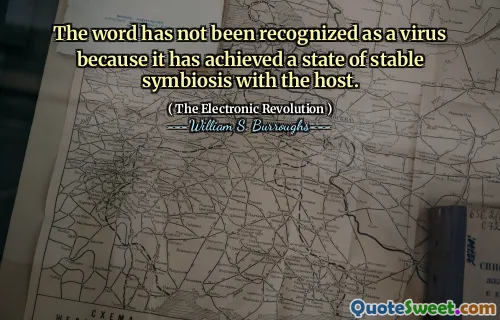"The Electronic Revolution," a pivotal work by Theodore Kaczynski, explores the profound impacts of technology on human life and society. Kaczynski argues that advancements in electronics and technology, while facilitating convenience and connection, also lead to unprecedented control and surveillance over individuals. He warns that as technology evolves, it increasingly reduces human freedom and autonomy, leading to a dystopian future where people are manipulated by the very tools they created.
The book delves into the concept of "technological society," suggesting that modern advancements strip away important human experiences and relationships. Kaczynski critiques both the reliance on technology for daily activities and the potential risks associated with this dependency. He believes that society's embrace of technology ultimately fosters an environment where genuine human interaction is replaced by artificial connections.
In summary, "The Electronic Revolution" serves as a warning against unbridled technological progress. Kaczynski calls for a critical reevaluation of our relationship with technology, urging readers to recognize the deleterious effects it has on personal freedom and community. His work invites an urgent discussion about the future of humanity in the shadow of its own inventions.
More »
Today Birthdays
1970 -
Shonda Rhimes
1599 -
Edmund Spenser
1940 -
Edmund White
1957 -
Lorrie Moore
1691 -
George Fox
1961 -
Wayne Coyne
1934 -
Carolyn See
1965 -
Bill Bailey
1967 -
Masha Gessen
1937 -
George Reisman
1890 -
Elmer Davis
1978 -
Nate Silver
1884 -
Sophie Tucker
1960 -
Matthew Bourne
1980 -
Maria de Villota
1977 -
Orlando Bloom
1976 -
Michael Pena
1952 -
Geoffrey Canada
1951 -
Frank Peretti
1955 -
Trevor Rabin
1808 -
Salmon P. Chase
1947 -
Robert Martin
1927 -
Sydney Brenner
1926 -
Carolyn Gold Heilbrun
1954 -
Denise Morrison
1960 -
Eric Betzig
1968 -
Traci Bingham
1919 -
Robert Stack
1970 -
Keith Coogan
1989 -
Beau Mirchoff
